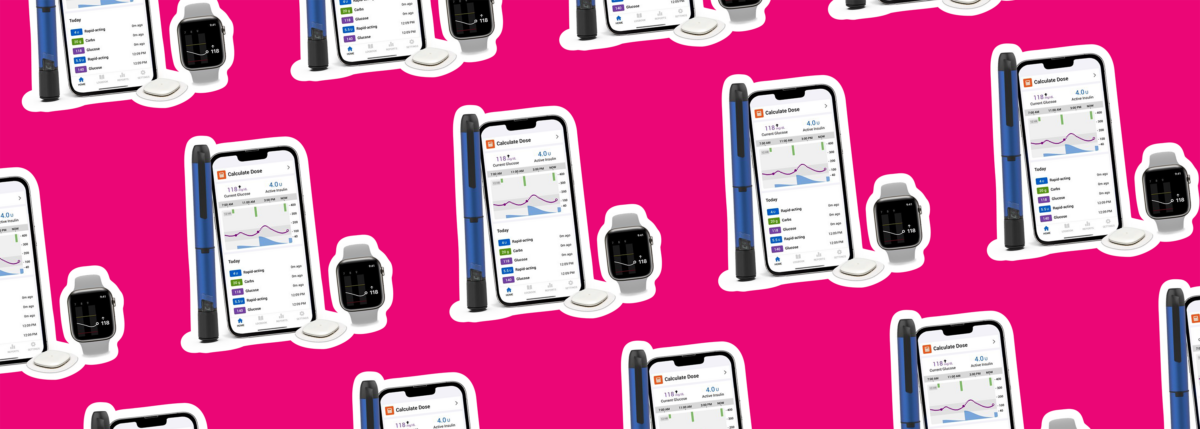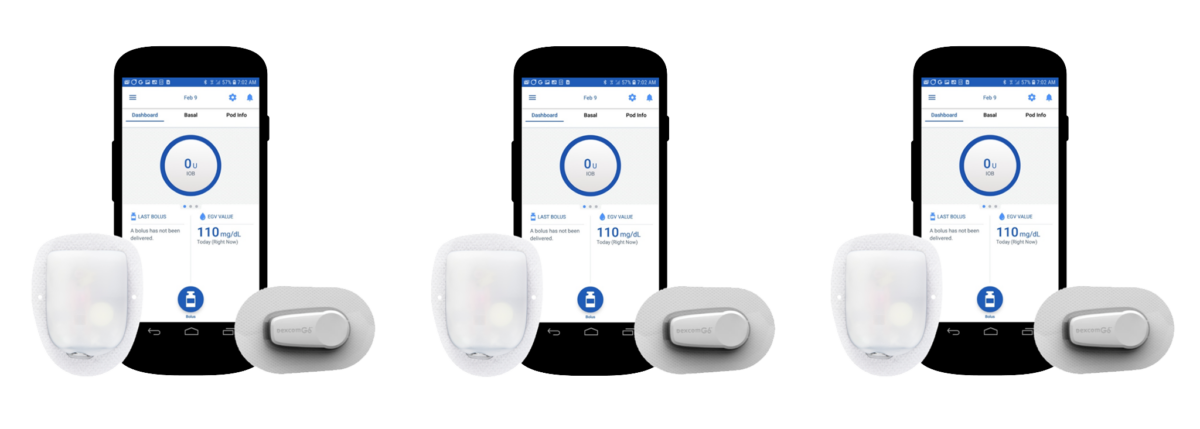Omnipod 5 Pivotal Trial Data Published
Written by: Kayla Hui, MPH
3 minute read
June 8, 2021
Editor’s Note: On Friday, January 28, 2022, Insulet’s Omnipod 5 automated insulin dosing (AID) system received FDA approval for individuals with type 1 diabetes, ages 6 years and older. Omnipod 5 was first launched through the pharmacy channel following a limited market release. The full-market release was announced on August 1, 2022, in the United States.
On June 7, study data of a multicenter trial from the highly-anticipated Omnipod 5, an automated insulin dosing (AID) system, also commonly referred to as a hybrid closed loop (HCL) or artificial pancreas (AP), were published online in Diabetes Care.
The results are from the pivotal trial, phase III of a clinical trial in a multi-year process of clinical research that is intended to demonstrate and confirm the safety and efficacy of a treatment, drug, or medical device. Pivotal trial results are those reviewed by the U.S. Food and Drug Administration (FDA) when considering approval.
Currently, there are only two AID systems available in the United States: Tandem’s Control-IQ and Medtronic’s MiniMed 670G and 770G. If approved, the Omnipod 5 from Insulet will be the third such system approved by the FDA, and would make history as the first AID tubeless (patch) pump and first AID that can be controlled with a smartphone.
The Omnipod 5 uses a disposable Omnipod insulin pump, Dexcom’s G6 continuous glucose monitor (CGM), and the Omnipod 5 algorithm, all of which work in conjunction with each other to adapt insulin delivery based on an individual’s blood glucose levels. Each pod delivers microboluses every five minutes. One of the device’s notable features include HypoProtect, a feature that allows users to temporarily set their blood glucose targets to 8.3 mmol/L150 mg/dl and monitor insulin delivery to prevent hypoglycemia, low blood sugar.
In the single-arm, multicenter, prospective clinical study, there was data from two type 1 groups: 129 adults and adolescents between 14 and 70 years old and 112 children ages 6 to 13.9 years. After three months of usage for a 14-day period, the study found the following in adults and adolescents:
- Improved increase in time-in-range (TIR)–the percentage of a time that a person’s blood glucose level falls in the target range–from 65 to 74 percent, which translates to 2.2 hours per day
- Reduction of HbA1c from 7.16 to 6.78 percent
- Mean blood glucose level decrease from 8.9 to 8.6 mmol/L161 to 154 mg/dl
The study found even larger improvements in children:
- TIR increased from 53 to 68 percent or an additional 3.7 hours per day
- HbA1c reduction from 7.67 to 6.99 percent
- Mean blood glucose level decrease from 10.7 to 8.9 mmol/L183 to 160 mg/dl
“Our team has been committed to developing a hybrid closed-loop insulin delivery system to advance the treatment of insulin-dependent diabetes,” said Trang Ly, MBBS, FRACP, PhD, Insulet senior vice president and medical director in a press release. “Our pivotal study has achieved remarkable improvement in blood glucose control, evidenced by impressive reduction in HbA1c and improved time in range, together with the lowest rates of hypoglycemia.”
Ly says that the approval would be an added win for the diabetes communities. “We are incredibly proud of these results, which demonstrate the system is safe and effective across a wide range of age groups. This is another step forward in our mission to simplify life for people with diabetes.”

Author
Kayla Hui, MPH
Kayla Hui is the health reporter for Beyond Type 1 covering diabetes, chronic illnesses and health inequities. She received her Masters in Public Health from the Boston University School of Public Health. Kayla won a Pulitzer Center fellowship and Slants Foundation award in 2020 for her project on the mental health of Chinese immigrant truck drivers. Her published work can be found at Healthline, Verywell Health, Pulitzer Center and more. Outside of work, Kayla enjoys rock climbing, baking and buying plants she doesn’t need. You can follow Kayla on Twitter at @kaylanhui.
Related Resources

On November 20, 2024, Medtronic received FDA clearance for its latest InPen app. This advancement...
Read more

Eli Lilly and Company is helping patients and caregivers understand important changes to Medicare Part...
Read more

Already compatible with Dexcom’s G6 and G7 continuous glucose monitors (CGMs), the Omnipod 5 Automated...
Read more

